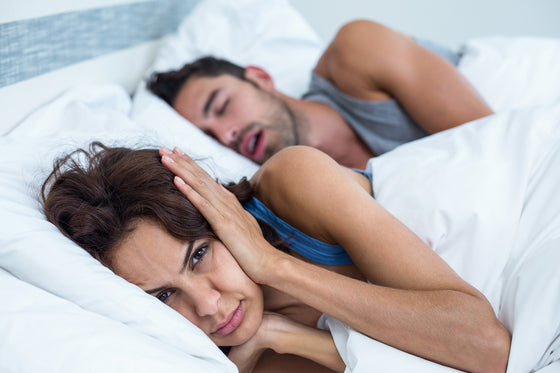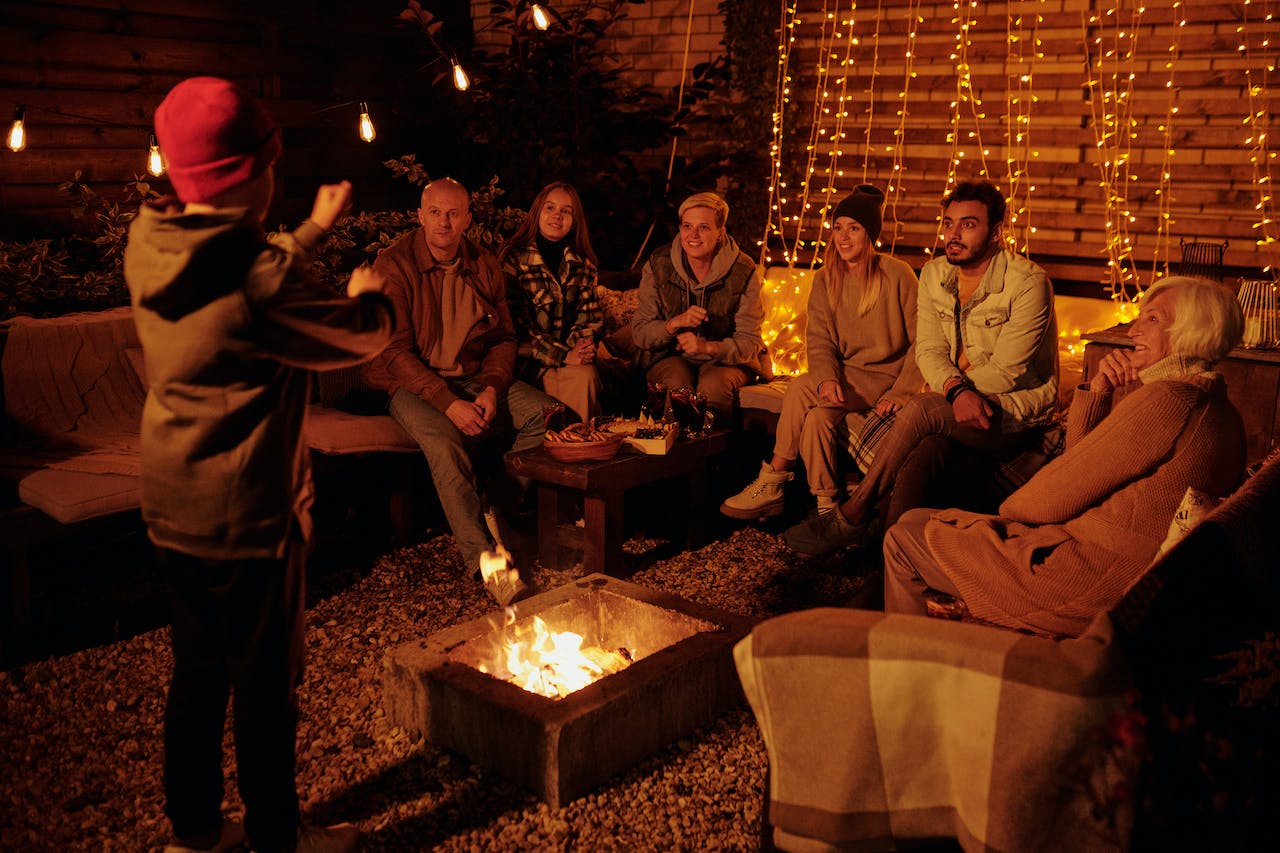Why the way you breathe could be causing your insomnia, bad morning breath and annoying night time trips to the loo!
This guest post was originally posted by Georgie Lawlor on the Breathe with Georgie Blog.
I don’t know about you, but how little sleep you can survive on sometimes seems like a competition amongst individuals that label themselves as ‘successful’ or ‘high performing’. Boasting that they are so busy and important they can’t possibly fit in more than 3 or 4 hours sleep at most as if they are some sort of work warrior. Work addict more like. Ever heard the phrase ‘work hard, play harder?’. I used to be about all the go, go, go and more, more, more life until I realised it wasn’t actually getting me anywhere other than a GP surgery due to becoming so energy deficient that I actually needed medical assistance. And no, thankfully I personally never got to that point but sadly, yes, there are individuals who actually have got to the point of clinical burnout.
Scary right? But not particularly surprising.

In today’s goal orientated, fast paced society we are constantly being over stimulated by our, now many, devices and are often being asked to adhere to impossibly high standards in terms of performance. No wonder we can’t sleep! Not only that, this never-ending hamster wheel is causing a lot of us to ‘over breathe’; to breathe in excess of our metabolic requirements, which can cause a whole host of problems to your physical and mental health. We breathe all the time, around 25,000 times per day in fact, and so OBVIOUSLY the way we breathe effects every single area of our lives including, you guessed it, the quality of YOUR SLEEP.
Our quality of sleep is just not what it used to be, back in the good old days before phones and social media, not to mention a year of intermittent lockdowns. A 2020 article in the Guardian titled; ‘Coronavirus lockdown caused sharp increase of insomnia in UK’ revealed some crazy stats on the matter.
The overall incidence of worry-related sleep loss rose from 15.7% to 24.7%. But that 9% increase nationally masked much bigger spikes in certain groups, particularly mothers of young children. For example, while the number of men experiencing poor sleep rose from 11.9% to 16.5%, the increase among women was much more pronounced – it shot up from 18.9% to 31.8%. Sleeplessness doubled from 19.5% to 40% among mothers of children aged 0 to 4 and rose almost as dramatically – from 21.7% to 38% – for those with children aged 5 to 18.1
They go on to name Insomnia as one of Britain’s biggest health problems, affecting millions of people in normal times and often caused by stress, anxiety or depression, as well as often being linked to an underlying mental or physical health problem.

So what’s all this got to do with your breathing?
Well, most likely, the way you breathe during wakefulness is generally how you’re most likely to breathe during sleep. If your breathing is dysfunctional when you’re awake, it will be dysfunctional as you sleep putting you at much higher risk of obstructive sleep apnea, snoring, bad morning breath and insomnia, but more on that later.
A lot of us, without realising, have become habitual mouth breathers leading to a continuous stream of short, shallow breaths residing mostly in the upper chest, also known as dysfunctional breathing. Of course, mouth breathing is occasionally necessary when we’re exercising intensely, under threat, or have a cold or sinus infection, but it’s only ever meant to be occasional not habitual. Essentially, when we mouth breathe, we over breathe, expelling too much carbon dioxide, which actually reduces the amount of oxygen released from the haemoglobin to the tissues and organs. Yep, that’s right, carbon dioxide is actually the catalyst for the release of oxygen from the haemoglobin, you need it!
Sleep is supposed to be a time to repair fatigued muscles and restore the bodies energy levels for the following day, not to mention a chance to give your already over stimulated brain some down time. However, over-breathing through an open mouth during sleep causes carbon dioxide levels and blood oxygen levels to drop, triggering the brain into a fight or flight response through the influence of adrenalin and cortisol release putting the body in a state of stress. Not the ideal recipe for a good nights beauty sleep! The posh science name for this stressful sleep state is hyper-arousal and is characterised in part by chronic sympathetic hyper activation and/or parasympathetic hypo activation which disrupts normal sleep onset latency, sleep quality, and sleep duration.

SNORING.
We all know someone that snores and my heart goes out to anyone who has to sleep next to a snorer. Snoring is now SO common it’s actually been normalised among the western population. I have some bad news for you guys. It’s not normal. Humans should not snore.
Sleeping with your mouth open aggravates snoring in numerous ways. The main culprits being;
The airway is narrowed. An open mouth causes your throat to compress as your tongue falls further back into your airway and the open space behind your tongue and soft palate is reduced.
Inhaled air becomes turbulent. Directly inhaled air vibrates the soft tissues at the back of your mouth
The airway dries out. This is because mouth breathing doesn’t humidify incoming air like nasal breathing does.
You are more susceptible to breathing in harmful things. Unlike nasal breathing, mouth breathing doesn’t trap allergens and bugs which can in turn worsen your snoring.

BAD BREATH.
In addition to disrupting your sleep, and anyone within the next few rooms sleep, you may also have mouth breathing to thank for your stinky morning breath. Mouth breathing can be a cause of bad breath due to altered bacteria flora and a disturbance to the PH in our mouths. According to Michigan medicine, a major cause is decreased saliva. Saliva has a cleaning action that helps reduce or eliminate bad breath. When saliva decreases, bacteria can grow, causing bad breath. 3
OBSTRUCTIVE SLEEP APNEA
Mouth breathing at night also puts you at much higher risk of developing obstructive sleep apnea. A serious condition that, left untreated, can be fatal. Obstructive sleep apnea occurs when the muscles that support the soft tissues in your throat, such as your tongue and soft palate, temporarily relax. When these muscles relax, your airway is narrowed or closed causing airway obstruction as your tongue falls further back into your airway, and breathing momentarily ceases causing apnea.
FREQUENT PEEING
Believe it or not, it’s actually not normal to get up to pee more than once in the night and ideally you wouldn’t get up at all. The question is, what is actually causing our sleepy toilet trips? The posh science term here being, Nocturia.
Brandon R. Peters, M.D. from the Stanford centre for sleep sciences and medicine explains;
The body normally releases anti-diuretic hormone (ADH) in sleep to prevent needing to wake to urinate. It works to shut down the kidneys, preventing movement of fluids from the blood vessels to the bladder. The bladder is like a storage balloon, and there is no need to wake to empty it if the fluid isn’t there to start. No matter how well or poorly the bladder may function, or whether an enlarged prostate obstructs or not, without urine filling the bladder from overactive kidneys, these other issues should not matter.
Research and clinical experience demonstrates that sleep apnea changes the release of ADH (4). More severe sleep apnea may lead to pulmonary hypertension and right-sided heart failure. The body responds to this strain by stopping the release of ADH, which causes more urine to be produced, filling the bladder and triggering awakenings to pee during sleep.4
Peters goes on to describe a treatment called CPAP, whereby a constant flow of air is delivered through a face mask that keeps the airway open and prevents the associated changes and describes sleep apnea as the most overlooked cause of nighttime urination.
If you’re freaking out right now because you know you habitually breathe through your mouth, never fear. The solution is simple, easy and, unlike most medical solutions, will cost you less than your oat milk flat white from Starbucks.
Mouth taping can come across as some kinky millennial craze on first glance, but it’s actually a simple, effective tool that has the power to revolutionise your sleep (regardless of your sexual quirks)
Mouth taping involves placing a small piece of adhesive tape to gently bring the lips together to ensure nasal breathing whilst sleeping, think of it like a tiny moustache moved down an inch or two. If the tape doesn’t take your fancy, plenty of companies are now offering alternatives. Somnifix for example; SomniFix strips are hypoallergenic, can be painlessly removed without leaving a sticky residue, and have a small mesh vent to allow limited mouth breathing if necessary. Myotape is also a reputable company for mouth taping. However you wish to tape up, mouth taping has been shown to allow for deeper, more comfortable sleep, enhanced filtration, elimination of dry mouth, improved blood oxygen saturation, enhanced nitric oxide inhalation (a “mighty molecule” that helps to expand blood vessels and lower blood pressure) as well as reducing and often eliminating snoring and obstructive sleep apnea. I suffered with an excessively dry mouth in the mornings up until about a year ago. From the first night I taped my mouth I noticed an enormous difference in my energy levels, mouth moisture and muscle recovery! It was as if I had experienced a good night’s sleep for the first time in my adult life and it was oh so simple.

In addition to ensuring nasal breathing at night, making the switch as often as possible during the day is going to make your life a whole lot easier in terms of energy levels, your ability to focus, your digestion, your mental health, your fitness levels and your ability to cope with stress.
The key here is AWARENESS.
First, you need to figure out how you habitually breathe during rest and physical exercise then, you can start to implement nasal breathing as much as possible throughout your day. As a bonus, you’ll find that taking a moment, a few times per day, to simply become aware of your breathing will have a wonderfully calming and balancing effect, allowing you to effortlessly transition through the different segments of your day. Take it steady; changing the way you breathe is a journey, so take your time and be patient.
If you really want to optimise your health and wellbeing, why not see if you can breathe slow and low every time you check in with your breathing? Breathing lighter optimises your breathing efficiency, balances the nervous system and increases resilience in times of stress.
For more breathing tips and guided breathing videos check out my Breathe with Georgie channel on You Tube where you’ll find an array of breathing exercises for increased motivation, calm and balance.
Bibliography:
2.https://www.snorelab.com/open-mouth-snoring/
3.https://www.uofmhealth.org/health-library/sig258649spec



